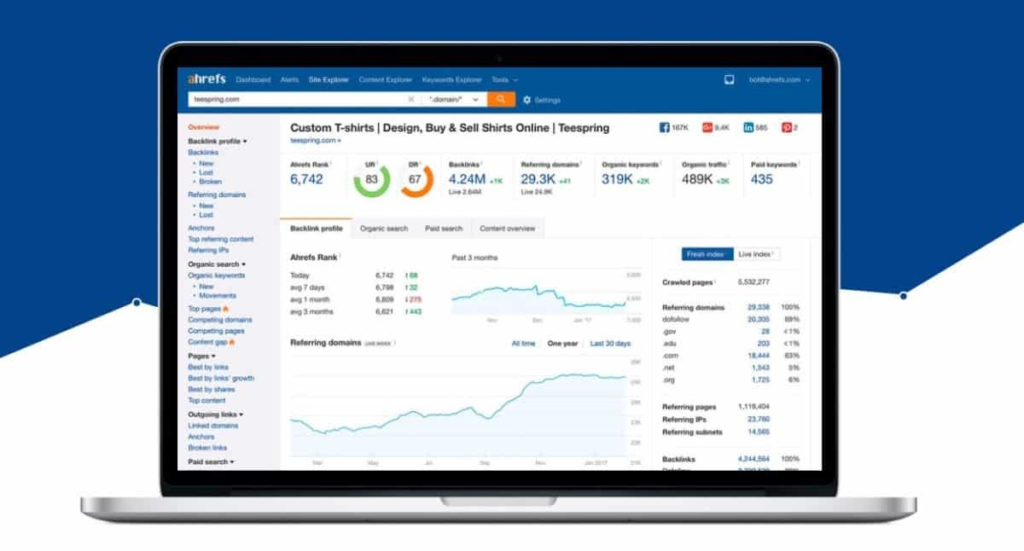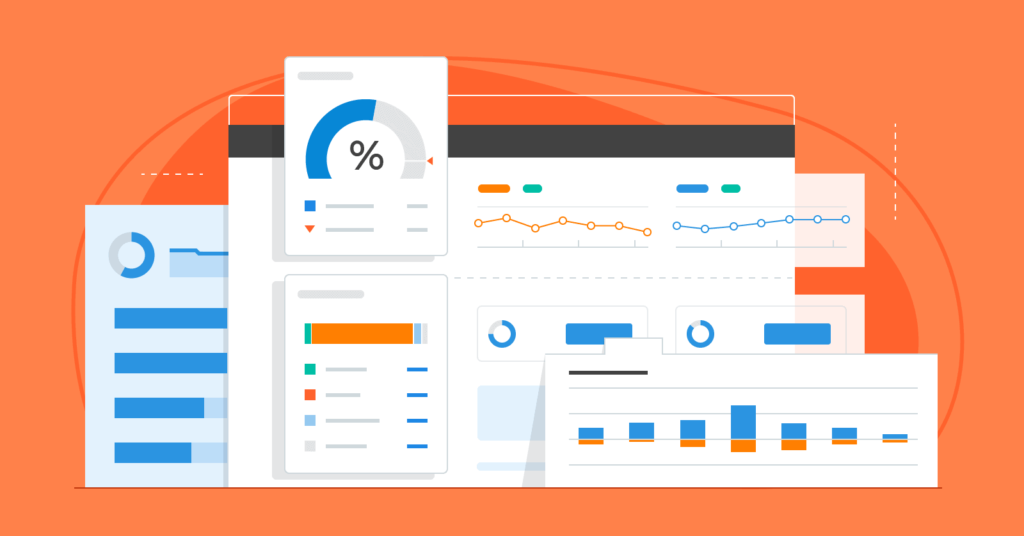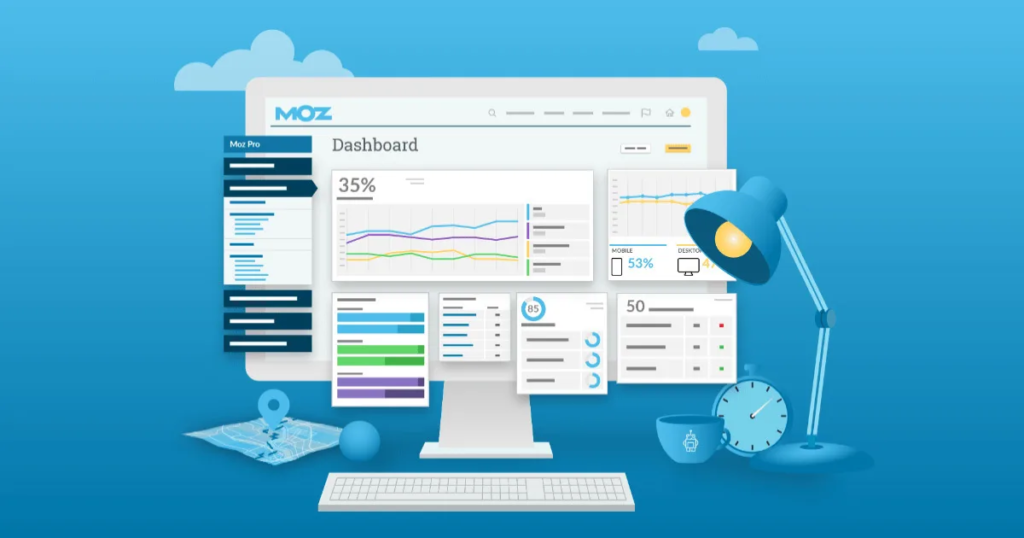SEO Automation: 10 SEO Automation Tools That Boost Efficiency
- Hanzla Ijaz
- seo automation
- 0 Comments
|
Getting your Trinity Audio player ready...
|
In the rapidly evolving digital landscape, SEO (Search Engine Optimization) remains a critical component of any successful online strategy. However, the traditional methods of SEO management can be tedious and time-consuming, often requiring substantial human effort to ensure optimal performance. This is where SEO automation comes into play.
SEO automation refers to the use of specialized software tools designed to carry out repetitive and data-intensive SEO tasks. These tasks include keyword research, competitor analysis, backlink monitoring, and content optimization, among others. By automating these processes, businesses and marketers can save time and resources, allowing them to focus on more strategic aspects of their digital marketing efforts.
One of the primary advantages of utilizing SEO automation tools is the significant time savings they offer. Manual SEO tasks require meticulous attention to detail and can take hours to complete. Automation reduces the workload by performing these tasks much more quickly and with increased accuracy. For example, keyword research tools can rapidly generate a comprehensive list of relevant keywords, eliminating the need for laborious manual searches.
Another key benefit is the improvement in accuracy and consistency. Human error can often creep into manual processes, potentially leading to suboptimal outcomes. SEO automation tools, however, are programmed to follow specific algorithms and established best practices, ensuring consistent and accurate results. This is particularly important for tasks such as on-page optimization, where precision is critical to achieving high search engine rankings.
Moreover, by leveraging the power of SEO automation, businesses can achieve a higher level of scalability in their SEO efforts. As the online environment becomes increasingly competitive, it is essential to keep up with the latest trends and technologies. Automation tools provide the flexibility to adapt quickly to changes in search engine algorithms and market dynamics, ensuring that SEO strategies remain effective and relevant.
In today’s digital world, the relevance of SEO cannot be overstated. As users increasingly rely on search engines to find information, goods, and services, businesses must ensure they are easily discoverable. SEO automation tools not only enhance the efficiency of SEO efforts but also contribute to more robust and sustainable online visibility, making them an indispensable asset in modern digital marketing strategies.

1. Ahrefs
Ahrefs is a comprehensive SEO toolset that stands out for its robust capabilities in backlink analysis, keyword research, and site audits. As one of the leading SEO automation tools, Ahrefs simplifies various tasks that are crucial for maintaining and improving search engine rankings. Its extensive features facilitate the automation of multiple SEO processes, thereby enhancing efficiency for digital marketers and SEO professionals.

One of the main advantages of using Ahrefs is its ability to track backlinks with precision. The tool provides detailed reports on backlink profiles, allowing users to monitor new backlinks, examine lost links, and assess the overall health of their website’s backlink portfolio. This automated tracking helps marketers quickly identify and address any potential issues that could negatively impact their site’s authority and ranking.
Ahrefs also excels in keyword research automation. Its comprehensive database helps users discover lucrative, low-competition keywords by providing insights into search volume, keyword difficulty, and potential traffic. Additionally, Ahrefs can generate keyword ideas and content suggestions based on the analysis of competitors’ rankings. This not only saves time but also ensures that marketers develop content strategies driven by data and proven success metrics.
The site audit feature in Ahrefs automates the process of identifying on-page SEO issues. It scans websites and flags problems such as broken links, duplicate content, and missing meta tags. With the automated reporting in place, marketers receive actionable insights to improve their website’s structure and content, enhancing overall user experience and search engine compatibility.
Examples of how marketers use Ahrefs to streamline their SEO processes include identifying content gaps by analyzing competing sites. By understanding what topics competitors are ranking for but their own site is lacking, marketers can create targeted content to close these gaps. Moreover, with the automatic monitoring of keyword rankings, marketers can track their SEO progress without manual intervention, enabling them to adjust strategies swiftly in response to performance trends.
Through these automated features, Ahrefs significantly enhances SEO campaign efficiency, allowing marketers to focus on strategic planning and creative executions rather than tedious manual tasks.
SEMrush
SEMrush stands out as a robust SEO and competitive research tool, renowned for its comprehensive automation features. This powerful platform streamlines various SEO tasks through advanced automation, significantly boosting efficiency for marketers. Among its myriad features, automated site audits, position tracking, and SEO content templates are particularly noteworthy.

Automated site audits in SEMrush allow users to regularly scan their websites for SEO issues without manual intervention. These audits generate detailed reports outlining technical SEO errors, providing actionable insights to enhance website health. By automating this process, marketers can promptly address issues that may impact their search engine rankings, thereby maintaining optimal site performance.
Position tracking in SEMrush is another valuable feature that automates the monitoring of keyword rankings. Users can set up automated tracking to receive regular updates on their position within search engine results pages (SERPs). This feature not only saves time but also ensures that users can swiftly respond to fluctuations in their rankings, keeping their SEO strategies agile and effective.
SEMrush’s SEO content templates further contribute to automation by guiding content creation based on top-ranking pages. These templates recommend optimal keywords, readability scores, length, and other critical elements, helping users craft content that meets search engine criteria and user expectations. By automating content optimization, SEMrush enables users to produce high-quality, SEO-friendly content with greater ease.
Additionally, SEMrush offers robust integration capabilities with other marketing tools and platforms, enhancing its utility in a comprehensive digital marketing strategy. Seamless integration with tools like Google Analytics, Google Search Console, and various CRM platforms ensures that all of a business’s marketing efforts are synchronized, driving more cohesive and data-driven decision-making.
Through its suite of automated features, SEMrush not only identifies SEO opportunities but also empowers users to optimize their content and track performance efficiently. This integration makes SEMrush an indispensable tool in the realm of SEO automation, addressing various aspects of a marketer’s workflow and contributing to sustained growth and enhanced web presence.
3. Moz Pro
Moz Pro stands out as a comprehensive SEO software suite designed to streamline various aspects of search engine optimization through automation. This tool offers a robust set of features including automated keyword tracking, site crawling, and on-page optimization suggestions, providing SEO professionals with a wealth of data to make informed decisions effortlessly.

One of the unique selling points of Moz Pro is its proprietary metrics such as Domain Authority (DA) and Page Authority (PA). These metrics offer an insightful gauge of a website’s correlation with search engine rankings. DA predicts how well a domain will rank in search results, whereas PA forecasts the ranking strength of individual pages. These metrics, unique to Moz, help users to better evaluate the effectiveness of their SEO strategies and make necessary adjustments to outperform competitors.
Moreover, Moz Pro’s automated keyword tracking capability allows users to monitor how their selected keywords are performing without manual interventions. With regular updates, users can stay on top of their keyword performance trends and make timely optimizations. The site crawling feature automates the process of identifying technical issues such as broken links and duplicate content, ensuring that the site is always search-engine friendly.
Another notable feature is Moz Pro’s on-page optimization suggestions. This function helps users enhance their website content by providing actionable recommendations based on current SEO best practices. By implementing these suggestions, users can improve their content’s relevancy and ranking potential.
In addition to its rich feature set, Moz Pro is recognized for its user-friendly interface. Even those who are new to SEO find the platform accessible and easy to navigate. Furthermore, Moz Pro boasts an active and supportive community. Users can leverage numerous resources such as forums, webinars, and educational guides to maximize the tool’s potential and continually refine their SEO strategies.
Screaming Frog SEO Spider
Screaming Frog SEO Spider is a premium SEO automation tool designed to streamline the intricate process of website crawling. As an adept solution, it performs comprehensive site audits, focusing on identifying and rectifying common SEO issues. By automating the website crawling process, Screaming Frog saves significant manual labor, translating into heightened efficiency and productivity for SEO professionals.

One of the core features of Screaming Frog SEO Spider is its ability to compile detailed reports on broken links. Broken link audits, once a time-consuming task, are effortlessly handled by this tool, ensuring links within a site remain functional and user-friendly. Additionally, the tool conducts in-depth redirect audits, identifying inefficiencies within redirect chains and loops that can detract from a site’s SEO performance.
The metadata analysis capabilities of Screaming Frog SEO Spider are equally noteworthy. Automating the review of key on-page elements like title tags, meta descriptions, and headers, the tool helps ensure that these elements meet SEO best practices. This not only enhances a site’s visibility on search engines but also improves the overall user experience.
Moreover, Screaming Frog offers a high degree of flexibility and customization. Users can tailor their crawls to suit specific needs, be it limiting crawls to certain URLs, setting custom DNS settings, or configuring specific user-agent strings. This adaptability makes Screaming Frog an indispensable asset in both large-scale SEO campaigns and smaller, more refined projects.
Overall, Screaming Frog SEO Spider empowers users to proactively identify and resolve SEO issues via an automated, structured approach. By integrating its robust suite of features, SEO professionals can significantly advance their ongoing efforts, ensuring sites remain search-engine optimized and compliant with the constantly evolving digital landscape.
Google Analytics and Google Search Console
Google Analytics and Google Search Console are indispensable SEO automation tools designed to streamline and optimize your website’s performance. These platforms provide a robust framework for automatically tracking, reporting, and analyzing critical SEO metrics.

Google Analytics excels in monitoring website traffic and user behavior. By leveraging its comprehensive suite of features, you can gain valuable insights into how visitors interact with your site. It automates the collection of data on sessions, bounce rates, user demographics, and conversion rates, allowing you to efficiently gauge the effectiveness of your content and marketing strategies.
On the other hand, Google Search Console focuses on your website’s presence in Google Search results. This tool automatically tracks and reports search performance metrics such as click-through rates (CTR), impressions, and keyword rankings. It offers vital data that helps you understand which queries drive traffic to your website and how users discover your content.
Both tools allow you to set up automated alerts for various SEO metrics. In Google Analytics, you can configure alerts to notify you of significant changes in traffic patterns or user behavior, such as a sudden spike in bounce rate. Google Search Console similarly lets you set alerts for issues like indexing errors or sudden drops in rankings. By receiving these automated notifications, you can promptly address potential problems before they significantly impact your SEO performance.
Utilizing the automation capabilities of Google Analytics and Google Search Console enables you to make data-driven decisions. By regularly reviewing the insights provided by these platforms, you can fine-tune your SEO strategies to enhance user experience, improve search visibility, and ultimately achieve better ROI on your digital marketing efforts.
6. BrightEdge
BrightEdge stands out as an enterprise-level SEO platform renowned for its automated recommendations, comprehensive content insights, and robust performance tracking. Among its remarkable features lies the Data Cube, a substantial data repository that drives the platform’s automated insights and forecasting capabilities.
With the power of the Data Cube, BrightEdge helps businesses discover valuable keyword opportunities. This extensive data repository analyzes vast amounts of search data, identifying patterns and trends that can illuminate untapped keyword potentials. This capability not only streamlines the keyword research process but transforms it into a more precise, data-driven approach.
Content optimization at scale is another significant advantage provided by BrightEdge. The platform’s automated recommendations allow marketers to enhance their content strategy efficiently. These insights guide users on how to refine content elements such as on-page SEO factors, meta tags, and content structure. Consequently, businesses can boost their search engine rankings and visibility more effectively without manually sifting through extensive datasets.
Performance tracking is equally critical for a successful SEO strategy, and BrightEdge excels in this area. Its robust tracking mechanisms enable businesses to monitor SEO ROI with precision. The platform provides detailed analytics on various performance indicators, including traffic growth, keyword rankings, and conversion rates. This level of detail empowers businesses to make informed, strategic decisions that align with their overall marketing and business objectives.
By leveraging BrightEdge’s comprehensive suite of features, businesses can achieve a more streamlined and efficient SEO workflow. The combination of automated recommendations, insightful data, and meticulous performance tracking makes BrightEdge an indispensable tool for enterprises aiming to scale their SEO efforts and maximize their online presence.
Yoast SEO
Yoast SEO is a widely recognized WordPress plugin designed to streamline on-page SEO efforts through various automation features. As one of the prominent SEO automation tools, it offers real-time content analysis that assists users in enhancing their website content for optimal search engine visibility. Yoast SEO’s built-in analysis tool evaluates the readability and SEO score of individual posts and pages, offering actionable insights and recommendations to improve both aspects.

A key component of Yoast SEO is its ability to generate and optimize meta tags automatically. This includes the title tag, meta description, and other essential meta tags that search engines utilise to understand and rank web pages. By using pre-defined templates and user-inputted variables, Yoast SEO ensures that these tags are not only optimised but also standardised across the website, which significantly contributes to consistent and effective on-page SEO. Additionally, the plugin highlights areas that require attention, such as keyword density and alt attributes for images, helping maintain thorough SEO practices.
Furthermore, Yoast SEO facilitates the creation and maintenance of XML sitemaps, which play a crucial role in helping search engines crawl and index website content efficiently. This automated feature ensures that all new pages, posts, and changes are promptly updated in the sitemap, thus improving the website’s indexing rate. It also includes settings for excluding specific content types from the sitemap to prevent potential issues with duplicate content.
The usability of Yoast SEO extends to guiding users with a traffic light system, which offers a visual representation of individual content performance. By presenting real-time suggestions and improvements, such as keyword optimization and internal linking opportunities, Yoast SEO empowers users to refine their on-site SEO strategy continuously. Consequently, this comprehensive automation tool has a significant impact on simplifying SEO tasks and enhancing overall website optimization.
The Future of SEO Automation
As the digital landscape continues to evolve, SEO automation is rapidly advancing, propelled by innovations in artificial intelligence and machine learning. These technologies enable SEO automation tools to become increasingly sophisticated, providing businesses with insights that were previously unattainable. Modern tools can analyze vast datasets to identify trends, optimize content in real-time, and detect technical issues before they affect search engine rankings.
One of the most promising future developments in SEO automation is the integration of predictive analytics. Predictive analytics can forecast the impact of specific SEO strategies, helping companies tailor their approaches for maximum effectiveness. By leveraging historical data and trend analysis, these tools can offer proactive recommendations, enabling businesses to stay ahead of the competition.
Voice search optimisation is another area gaining significant traction. With the rise of smart assistants like Alexa and Google Assistant, voice search is becoming an integral part of how users interact with information online. SEO automation tools are adapting to this shift, offering features to optimise content for voice queries, which often differ significantly from text-based searches.
However, it’s essential to balance the use of automation tools with human expertise. While these tools provide valuable data and streamline many SEO tasks, the nuanced understanding and strategic thinking that humans bring to the table remain irreplaceable. An effective SEO strategy involves combining the precision of automation with the creativity and critical thinking of skilled SEO professionals.
Conclusion
In conclusion, the future of SEO automation is bright, with continuous advancements making tools smarter and more efficient. By adopting these cutting-edge tools and balancing them with human insight, businesses can effectively navigate the ever-changing SEO landscape, ensuring sustainable growth and success.






